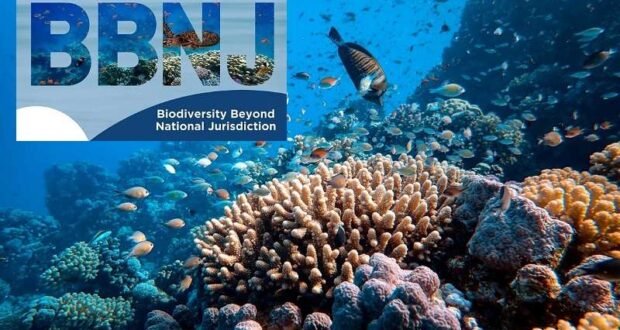UN Hosts Preparatory Commission for BBNJ Treaty Implementation
The twin-island Federation of St. Kitts and Nevis is actively participating in shaping the future of ocean governance by engaging in the inaugural session of the Preparatory Commission for the BBNJ Agreement. This landmark agreement, formally known as the Agreement under the United Nations Convention on the Law of the Sea on the Conservation and Sustainable Use of Marine Biological Diversity of Areas Beyond National Jurisdiction, marks a significant step towards establishing a comprehensive legal framework for managing and protecting the biodiversity of the high seas. The ongoing session at the UN Headquarters in New York serves as a crucial platform for member states to lay the groundwork for the Agreement’s implementation and ensure its effectiveness in safeguarding the marine environment.
St. Kitts and Nevis recognizes the importance of the BBNJ Agreement for the sustainable use and conservation of marine resources, especially within the context of Small Island Developing States (SIDS). SIDS are particularly vulnerable to the impacts of climate change and ocean degradation, making the preservation of marine biodiversity a critical component of their sustainable development strategies. The Federation’s delegation, composed of experienced diplomats and legal experts, is actively contributing to the discussions, ensuring that the voices and concerns of SIDS are adequately represented in the ongoing deliberations. Their presence underscores the nation’s commitment to international cooperation and the responsible management of global commons.
The BBNJ Agreement addresses four key areas crucial for managing biodiversity in areas beyond national jurisdiction: marine genetic resources, including questions on benefit-sharing; area-based management tools, including marine protected areas; environmental impact assessments; and capacity-building and the transfer of marine technology. These components provide a comprehensive approach to conservation and sustainable use by recognizing the interconnectedness of these elements. The Agreement establishes a framework for sharing the benefits derived from marine genetic resources found in these areas, promoting equitable access and utilization while ensuring the conservation and sustainable use of these resources.
The establishment of area-based management tools, including marine protected areas, is a core element of the BBNJ Agreement. This provision allows for the creation of protected zones in the high seas, safeguarding vulnerable ecosystems and biodiversity hotspots from harmful activities. This is especially vital for preserving unique deep-sea habitats and migratory species that traverse vast ocean expanses. Environmental impact assessments, another key area addressed by the Agreement, aim to minimize the negative impacts of human activities on the high seas by requiring thorough assessments before undertaking potentially harmful projects. This precautionary approach ensures that potential environmental consequences are carefully considered and mitigated, promoting responsible and sustainable development.
Capacity-building and the transfer of marine technology are crucial for enabling developing states to participate effectively in the implementation of the BBNJ Agreement. The Agreement recognizes the need for enhanced capacity in areas such as scientific research, monitoring, and enforcement, and promotes the sharing of technological advancements and expertise to bridge the gap between developed and developing nations. This cooperative approach ensures that all states have the necessary resources and skills to contribute to the effective management of the high seas, fostering a more equitable and inclusive approach to ocean governance.
St. Kitts and Nevis, along with other nations, is actively preparing to ratify the BBNJ Agreement, demonstrating their commitment to international cooperation and the responsible management of global commons. The Agreement provides a much-needed framework for regulating activities in areas beyond national jurisdiction, previously a governance gap in international law. By participating in the Preparatory Commission, St. Kitts and Nevis is playing a vital role in shaping the future of ocean governance, ensuring that this crucial agreement effectively protects marine biodiversity for generations to come. The Federation’s proactive engagement exemplifies its dedication to sustainable development and the preservation of the marine environment, crucial for the well-being of both present and future generations. This commitment reflects the nation’s understanding of the interconnectedness of the global ocean and the importance of collaborative efforts to safeguard this vital resource.
Share this content:












Post Comment